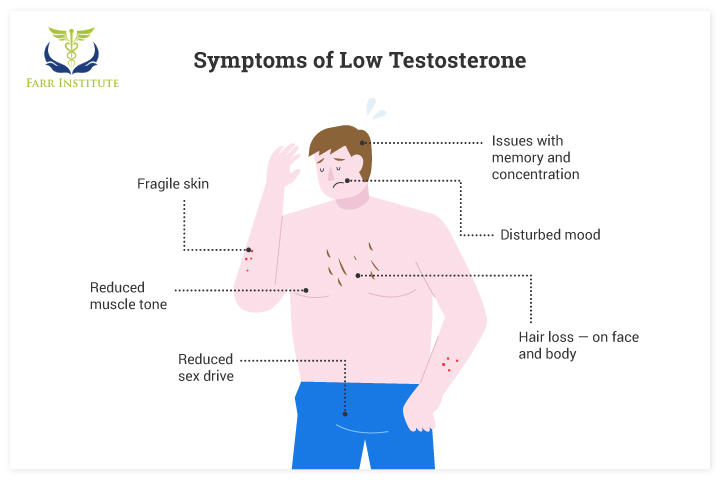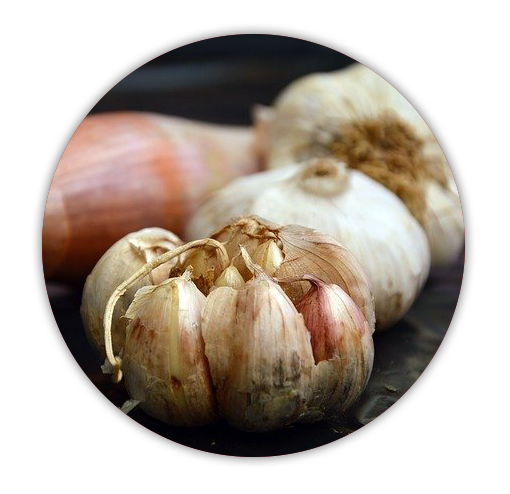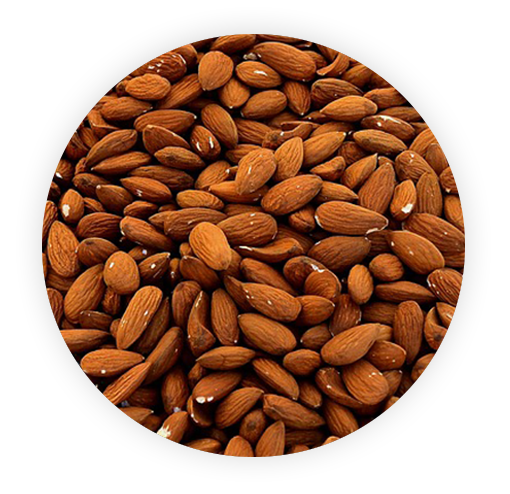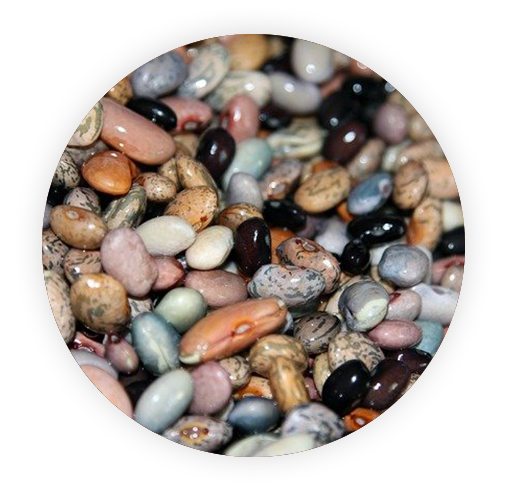Can Cod Raise To Testosterone Levels
Testosterone helps increase muscle mass and brings you vitality. If you've been going to the gym regularly and feel like you've hit a plateau, increasing your testosterone levels may be the solution.
The good news is you can bring your hormone levels to a healthy balance without medication. If you're looking for ways to increase testosterone naturally, we have the answers.
Eat the right foods and practice healthy lifestyle habits, and you'll ramp up your testosterone production without resorting to chemicals. We've compiled the best food and lifestyle choices, as well as supplements, to boost your hormone levels and get the most out of your workouts.
What Happens When a Man's Testosterone Is Low

Lower than optimal testosterone levels have many effects on your health. These are the most common ones:
- Reproductive health: Men with low testosterone levels often lose their sex drive. You also experience a low sperm count and erectile dysfunction [1].
- Vitality: When male hormone levels experience a dip, your energy levels sink, too.
- Obesity: High body fat is both a symptom and a cause of low testosterone.
- Loss of muscle and bone: Testosterone is key in the maintenance and production of muscle mass and bone, for both men and women [2].
- Mood disorders: Low levels of testosterone have been linked with a raised incidence of anxiety and depression.
Testosterone levels tend to drop with age, causing some additional problems due to the loss of muscle mass and bone density. It's a natural part of the aging process in men and doesn't necessarily require any action, such as hormonal therapies [3].
You can give yourself a boost to get your testosterone levels as high as possible through food and lifestyle choices, though.
The Foods That Increase Testosterone the Most
Some of the best ways to increase your testosterone levels naturally with your diet include:
Garlic for Testosterone

You've probably heard the conventional wisdom of garlic keeping you safe from the flu, but the health benefits don't stop there [4][5].
Garlic is also helpful for those suffering from low testosterone. In one study, this plant lowered cortisol and increased testosterone levels in rats fed with a high-protein diet [6].
Adding garlic to your cooking is one of the best testosterone boosters, but it's even more potent when eaten raw. It can be more upsetting to your stomach—and those around you—raw, so take it slow [5].
Caffeine

Coffee, especially the caffeinated variety, has the potential to raise testosterone levels in men. In women, the effect is reversed: both decaffeinated and caffeinated coffee can decrease testosterone [7].
There is one important thing to note before you start drinking a full pot every time you head to the gym. The beneficial effects of caffeine may be offset by the rise in cortisol (the stress hormone), which rises after you drink coffee [8].
Oysters Are the Best Testosterone Boosters

Zinc is necessary for testosterone production and overall health. If you're looking to stack up on this mineral, you should turn to oysters.
They have a massive concentration of zinc, even higher than meat or fish. These hormone-enhancing properties are likely the origin of the conventional wisdom that oysters are an aphrodisiac [9][10].
Beef

Red meat, especially beef, is a good source of the protein you need for muscle building and zinc. It also has cholesterol, which your testicles convert into testosterone [11].
Processed and high-fat meats can lead to health problems and lower male hormones, so make sure you feed your muscles with the highest quality lean cuts [12].
Bananas Can Increase Testosterone

Bananas are a nutritional powerhouse, and they're also good for managing testosterone levels. This fruit contains tons of potassium that keeps you free of muscle cramps when training, and it's also rich in magnesium, an important mineral in male hormone production [13][14].
Pineapple

Pineapples contain high amounts of an enzyme called bromelain, which has been linked to improved athletic performance and maintenance of healthy hormone levels. It's also high in insoluble fiber, which keeps your digestion running smoothly [15][16].
Fish Nutrients for Increasing Testosterone

Fish is full of nutrients that can be beneficial to your health, from vitamin D to zinc. Tuna is incredibly high in selenium, helping offset the mercury present in larger fish and boost testosterone. Fish oil supplements have also been linked to increased testosterone levels [17][18][19][20].
Almonds

Almonds are high in vitamin E, which has been proven to increase testosterone levels in rats and humans. Almonds also include zinc and magnesium, which are both known to boost male hormones [21].
Legumes for Natural Testosterone

Legumes contain both plant-based proteins and minerals, from magnesium to zinc, to boost testosterone levels naturally. They're also high in fiber to keep you full, and carbohydrates give you energy in your workouts [22][23].
Avoid Foods That Decrease Testosterone
These are some of the foods you should avoid or consume in moderation if you're looking for ways to increase testosterone levels naturally.
Some of them have a clearly negative effect on your hormonal system, whereas others are still under question.
Alcohol
Alcohol in high amounts is an enemy of testosterone. While moderate alcohol consumption may even increase testosterone, indulging too often causes the levels to drop by 23 percent [24].
In women, the relationship between the two is inverse. Alcohol consumption actually increases the estrogen level in a female body, which can lead to a higher incidence of breast cancer [23].
Alcohol consumption also causes a spike in your cortisol levels, which is bad news for those looking to build muscle [25].
Processed Foods and Testosterone
The typical Western diet of bread, dairy, fried food, and sugar has been linked to higher body fat and lower than optimal testosterone levels. Diets higher in homemade foods and green vegetables, on the other hand, are related to overall healthy composition and hormonal balance [26][27]
To improve your health and boost testosterone in your body, ditch the takeout, and eat more vegetables.
Flaxseed
The jury still seems to be out on the full effects of flaxseed on testosterone, with studies indicating both higher and lower levels of this hormone.
On the one hand, flaxseed is rich in lignans, a chemical that acts much like testosterone. Lignans can help lower testosterone and reduce prostate cancer risk [28].
However, in another study in rats, lifetime consumption of flaxseed led to increased testosterone, but the results depended on the timing of the exposure [29].
Flaxseed is, in general, a healthy addition to your diet that helps with digestion and even has the potential to reduce cardiovascular disease. Still, if you're struggling with low testosterone levels, it may be best to eat it in moderation [30].
Tomatoes
Tomatoes are rich in multiple nutrients, including lycopene. This chemical compound has numerous potentially positive effects on men, including a decreased risk of prostate cancer.
Studies suggest this is because of its ability to lower testosterone levels, so for those looking for testosterone boosters, it's best to consume it in moderation [31][32].
Lycopene is also present in cooked and processed tomatoes, so you can enjoy your tomato as a sauce and still benefit from its cancer-fighting properties. Keep to a moderate portion and don't pour sugary ketchup or sauces over-processed foods [33].
The Case of Soy and Testosterone
While there is a common belief that eating soy will give you higher estrogen, this is not necessarily the case.
Soy contains plant estrogens or phytoestrogens, which mimic the effects of this female hormone. However, this form of estrogen may not have a negative impact on your health.
On the other hand, soy protein concentrate has been shown to decrease testosterone levels in some studies; for this reason, it has been proposed as a possible treatment for prostate cancer. In another study, neither whey nor soy protein caused an alteration in hormone levels [34][35].
When it comes to soy, use common sense and moderation, and you should be fine.
Testosterone and Vegetarian Diets
Another common concept is that vegan and vegetarian diets will contribute to lower levels of testosterone. Still, one study found vegans to have higher testosterone levels than both vegetarians and meat-eaters [36].
The vegans and vegetarians in this study were younger and had a lower body weight than meat-eaters, which can affect the results. If these men were healthier in general, they would also tend to have higher testosterone levels.
Nonetheless, the study seems to prove that you can have a vegetarian or vegan diet and enjoy optimal hormonal balance and health.

How You Can Fix Low Testosterone with Lifestyle Choices
Testosterone levels don't only come down to the foods you eat, but also to your lifestyle. The best strategy for testosterone deficiency is to attack the problem from all angles, combining nutrition with sleep, exercise, and stress management.
Here are some tips for maximizing testosterone production in your everyday life:
Exercise and Increase Testosterone
While testosterone is necessary for muscle growth, this relationship also goes in the other direction. Exercise, especially cardiovascular fitness, can help improve testosterone levels [37][38].
Resistance training can also have an impact on hormone levels, especially when it's consistent. In a 12-week study, testosterone increased after following a muscle-building program, though this effect was higher in younger men [39].
The effect of weight lifting is also immediate, so you can get a natural boost of testosterone whenever you hit the gym [40].
Sleep
Getting 8 hours of sleep is also crucial for your endocrine or hormone system. Sleep deprivation is linked to decreased testosterone, but you might be surprised at how fast this problem can appear [41].
A week-long study showed that cutting back on sleep by three hours for one week in healthy young men reduced testosterone levels by 10 to 15 percent [42].
Insufficient sleep is also related to cardiovascular disease, a higher Body Mass Index (BMI), diabetes, and an increased risk of car and workplace accidents [43].
Losing Weight
Bodyweight and testosterone have a close bidirectional relationship, in which both affect the other. In this vicious cycle, a high-fat percentage lowers your testosterone levels, which in turn makes you accumulate more fat. It also increments the body's inflammatory reactions and worsens insulin resistance and diabetes [44][45].
If you struggle with obesity, getting your weight under control can help you break this pattern. A surge in male hormones can help you lose weight, and a lower body fat percentage can, in turn, increase testosterone.
Stress Management for Increasing Testosterone
Chronic stress can lead to lower testosterone levels and other mechanisms that accelerate aging in the body. On the other hand, very high testosterone can cause reactions to acute stress and possibly even lead to the onset of mood disorders and substance abuse [46][47].
Stress management interventions have the potential to give you more testosterone, so handling your anxiety is not only good for your mind but also your hormonal balance [48].
The resultant effect on your hormones does depend on other factors, such as your normal response to stress.
Avoiding Plastic
Bisphenol A, or BPA, is a common chemical present in plastics and the linings of some metal cans. BPA-containing plastics have been linked to disrupted hormones, so it's better to opt for glass whenever possible [49].
Another nasty chemical used in chemicals and plastics—including food packaging, toys, and shampoos—is phthalates. These have been linked to disrupted hormonal function in both women and men [50][51].
Medication and Supplements That Boost Testosterone
If food and lifestyle aren't enough to increase your testosterone levels, you can also find some supplements to help you. If you're interested in them, we made a comparison between the top testosterone boosters available. You can also read our Testogen review.
Remember that all food consists of numerous components that interact in different ways, some of them still unknown to nutritional science. Supplements will never replace all the ways a healthy diet will keep you in balance.
Ashwagandha
The herb ashwagandha is common in Ayurvedic medicine, and there's a good reason to take it to improve your testosterone levels naturally. In a randomized trial, an ashwagandha supplement improved testosterone and overall health and energy levels [52].
Vitamin D
Vitamin D supplementation has been proven to increase testosterone levels. While the best way to get vitamin D is with your body producing it from exposure to sunlight, we don't always get the chance to do so [53][54].
You can eat vitamin D fortified foods, such as cereal or dairy products, or buy a vitamin D supplement, to reach the necessary levels in the winter.
Zinc and Testosterone
A zinc supplement can improve your body's natural defences to get your hormone levels back up naturally.
Zinc is an essential mineral that has many positive effects, from strengthening immunity to boosting testosterone. One study found that not only did zinc supplementation raise testosterone in older men, but decreasing zinc intake lowered the hormone in young, healthy men [55][56].
Magnesium
Magnesium supplementation can boost testosterone levels, but if you're not getting enough of this mineral from foods, you can take it as a daily supplement [57].
Another tastier option is to include some magnesium-rich chocolate in your diet. Since milk chocolate tends to be higher in sugar and fat, dark chocolate is the way to go if you're trying to keep your calories low [58].
Testosterone Therapy
If your testosterone deficiency is serious, your doctor can prescribe you a course of testosterone replacement therapy. Note that it's not necessary with normal testosterone-reduction related to aging.
Testosterone therapy can help treat some conditions associated with low levels of male sex hormones, such as obesity, erectile dysfunction, and loss of muscle mass [59]. If you'd like to find out more on this topic, you can read our detailed article on trt.
Anyhow, if you suspect you have low levels of testosterone, you should always seek medical advice.
The Risks of Testosterone Therapy
Testosterone therapy does come with some risks, especially if the medication is administered without medical supervision or in the wrong doses. These are some of the common potential risks associated with it [60]:
- Prostate cancer.
- Male breast cancer.
- Cardiovascular disease.
- Acne.
- Liver toxicity.
- Infertility.
The Takeaway on Increasing Testosterone
If you want to increase testosterone naturally, the best strategy is to make some healthy tweaks to your lifestyle. With hormones, you don't want to go too high or too low. Balance is key to keeping your energy levels high, building muscle, and avoiding disease.
Eating less processed foods and sugar paired with exercise, stress management, and enough sleep will increase testosterone and maintain health.
Try to incorporate the foods on our list and supplement them with zinc, magnesium, and vitamin D to boost your testosterone.

References
1. "Diagnosing and Managing Low Serum Testosterone." Proceedings (Baylor University. Medical Center), Baylor Health Care System, Oct. 2014, www.ncbi.nlm.nih.gov/pmc/articles/PMC4255853/.
2. "Revisiting the Role of Testosterone: Are We Missing Something?" Reviews in Urology, MedReviews, LLC, 2017, www.ncbi.nlm.nih.gov/pmc/articles/PMC5434832/.
3. "Aging and Declining Testosterone: Past, Present, and Hopes for the Future." Journal of Andrology, U.S. National Library of Medicine, 2012, www.ncbi.nlm.nih.gov/pmc/articles/PMC4077344/.
4. "Immunomodulation and Anti-Inflammatory Effects of Garlic Compounds." Journal of Immunology Research, Hindawi Publishing Corporation, 2015, www.ncbi.nlm.nih.gov/pmc/articles/PMC4417560/.
5. "Effect of Cooking on Garlic (Allium Sativum L.) Antiplatelet Activity and Thiosulfinates Content." Journal of Agricultural and Food Chemistry, U.S. National Library of Medicine, 27 Jan. 2007, pubmed.ncbi.nlm.nih.gov/17256959/.
6. "Garlic Supplementation Increases Testicular Testosterone and Decreases Plasma Corticosterone in Rats Fed a High Protein Diet." The Journal of Nutrition, U.S. National Library of Medicine, Aug. 2001, pubmed.ncbi.nlm.nih.gov/11481410/.
7. "The Effects of Caffeinated and Decaffeinated Coffee on Sex Hormone-Binding Globulin and Endogenous Sex Hormone Levels: a Randomized Controlled Trial." Nutrition Journal, BioMed Central, 19 Oct. 2012, www.ncbi.nlm.nih.gov/pmc/articles/PMC3502342/.
8. "Dose Effect of Caffeine on Testosterone and Cortisol Responses to Resistance Exercise." International Journal of Sport Nutrition and Exercise Metabolism, U.S. National Library of Medicine, Apr. 2008, pubmed.ncbi.nlm.nih.gov/18458357/.
9. "Zinc Is an Essential Element for Male Fertility: A Review of Zn Roles in Men's Health, Germination, Sperm Quality, and Fertilization." Journal of Reproduction & Infertility, Avicenna Research Institute, 2018, www.ncbi.nlm.nih.gov/pmc/articles/PMC6010824/.
10. "Provisional Tables on the Zinc Content of Foods." Journal of the American Dietetic Association, U.S. National Library of Medicine, Apr. 1975, pubmed.ncbi.nlm.nih.gov/1090644/.
11. "Hormonal Regulation of Testicular Steroid and Cholesterol Homeostasis." Molecular Endocrinology (Baltimore, Md.), The Endocrine Society, Mar. 2008, www.ncbi.nlm.nih.gov/pmc/articles/PMC2262169/.
12. "Meat Intake and Reproductive Parameters among Young Men." Epidemiology (Cambridge, Mass.), U.S. National Library of Medicine, May 2014, www.ncbi.nlm.nih.gov/pmc/articles/PMC4180710/.
13. "A Man with a Worrying Potassium Deficiency." Endocrinology, Diabetes & Metabolism Case Reports, Bioscientifica Ltd, 2014, www.ncbi.nlm.nih.gov/pmc/articles/PMC3965273/.
14. "Magnesium: Are We Consuming Enough?" Nutrients, MDPI, 2 Dec. 2018, www.ncbi.nlm.nih.gov/pmc/articles/PMC6316205/.
15. "Acute Protease Supplementation Effects on Muscle Damage and Recovery across Consecutive Days of Cycle Racing." European Journal of Sport Science, U.S. National Library of Medicine, 21 Jan. 2015, pubmed.ncbi.nlm.nih.gov/25604346/.
16. "Water-Insoluble Fiber-Rich Fraction from Pineapple Peel Improves Intestinal Function in Hamsters: Evidence from Cecal and Fecal Indicators." Nutrition Research (New York, N.Y.), U.S. National Library of Medicine, 12 Mar. 2014, pubmed.ncbi.nlm.nih.gov/24774071/.
17. "Determination of Essential Elements (Copper, Manganese, Selenium and Zinc) in Fish and Shellfish Samples. Risk and Nutritional Assessment and Mercury-Selenium Balance." Food and Chemical Toxicology : an International Journal Published for the British Industrial Biological Research Association, U.S. National Library of Medicine, 2 Sept. 2012, pubmed.ncbi.nlm.nih.gov/24007738/.
18. "Mercury Toxicity and the Mitigating Role of Selenium." EcoHealth, U.S. National Library of Medicine, 6 Feb. 2009, pubmed.ncbi.nlm.nih.gov/19198945/.
19. "Effects of Selenium on the Proliferation, Apoptosis and Testosterone Production of Sheep Leydig Cells in Vitro." Theriogenology, U.S. National Library of Medicine, 16 Jan. 2017, pubmed.ncbi.nlm.nih.gov/28257863/.
20. "Do Fat Supplements Increase Physical Performance?" Nutrients, MDPI, 7 Feb. 2013, www.ncbi.nlm.nih.gov/pmc/articles/PMC3635209/.
21. "Effect of Vitamin E on Function of Pituitary-Gonadal Axis in Male Rats and Human Subjects." Endocrinologia Japonica, U.S. National Library of Medicine, June 1982, pubmed.ncbi.nlm.nih.gov/6816576/.
22. "Legumes: Health Benefits and Culinary Approaches to Increase Intake." Clinical Diabetes : a Publication of the American Diabetes Association, American Diabetes Association, Oct. 2015, www.ncbi.nlm.nih.gov/pmc/articles/PMC4608274/.
23. "The Potential Health Benefits of Legumes as a Good Source of Dietary Fibre." The British Journal of Nutrition, U.S. National Library of Medicine, 18 Oct. 2009, pubmed.ncbi.nlm.nih.gov/19825218/.
24. "Alcohol Consumption and Hormonal Alterations Related to Muscle Hypertrophy: a Review." Nutrition & Metabolism, BioMed Central, 6 June 2014, www.ncbi.nlm.nih.gov/pmc/articles/PMC4056249/.
25. "The Regulation of Muscle Mass by Endogenous Glucocorticoids." Frontiers in Physiology, Frontiers Media S.A., 3 Feb. 2015, www.ncbi.nlm.nih.gov/pmc/articles/PMC4315033/.
26. "Dietary Patterns in Relation to Testosterone Levels and Severity of Impaired Kidney Function among Middle-Aged and Elderly Men in Taiwan: a Cross-Sectional Study." Nutrition Journal, BioMed Central, 27 July 2019, www.ncbi.nlm.nih.gov/pmc/articles/PMC6660671/.
27. "Testosterone-Associated Dietary Pattern Predicts Low Testosterone Levels and Hypogonadism." Nutrients, MDPI, 16 Nov. 2018, www.ncbi.nlm.nih.gov/pmc/articles/PMC6266690/.
28. "Flaxseed Consumption Influences Endogenous Hormone Concentrations in Postmenopausal Women." Nutrition and Cancer, U.S. National Library of Medicine, 2001, pubmed.ncbi.nlm.nih.gov/11588903/.
29. "Dose, Timing, and Duration of Flaxseed Exposure Affect Reproductive Indices and Sex Hormone Levels in Rats." Journal of Toxicology and Environmental Health. Part A, U.S. National Library of Medicine, Apr. 1999, pubmed.ncbi.nlm.nih.gov/10321385/.
30. "Dietary Flaxseed as a Strategy for Improving Human Health." Nutrients, MDPI, 25 May 2019, www.ncbi.nlm.nih.gov/pmc/articles/PMC6567199/.
31. "Tomatoes, Lycopene, and Prostate Cancer: Progress and Promise." Experimental Biology and Medicine (Maywood, N.J.), U.S. National Library of Medicine, Nov. 2002, pubmed.ncbi.nlm.nih.gov/12424328/.
32. "Dietary Tomato and Lycopene Impact Androgen Signaling- and Carcinogenesis-Related Gene Expression during Early TRAMP Prostate Carcinogenesis." Cancer Prevention Research (Philadelphia, Pa.), U.S. National Library of Medicine, Dec. 2014, www.ncbi.nlm.nih.gov/pmc/articles/PMC4259248/.
33. "Tomato Products, Lycopene, and Prostate Cancer Risk." The Urologic Clinics of North America, U.S. National Library of Medicine, Feb. 2002, pubmed.ncbi.nlm.nih.gov/12109359/.
34. "Soy Protein Isolates of Varying Isoflavone Content Exert Minor Effects on Serum Reproductive Hormones in Healthy Young Men." The Journal of Nutrition, U.S. National Library of Medicine, Mar. 2005, pubmed.ncbi.nlm.nih.gov/15735098/.
35. "Soy Protein Supplementation Is Not Androgenic or Estrogenic in College-Aged Men When Combined with Resistance Exercise Training." Scientific Reports, Nature Publishing Group UK, 24 July 2018, www.ncbi.nlm.nih.gov/pmc/articles/PMC6057888/.
36. "Hormones and Diet: Low Insulin-like Growth Factor-I but Normal Bioavailable Androgens in Vegan Men." British Journal of Cancer, U.S. National Library of Medicine, July 2000, pubmed.ncbi.nlm.nih.gov/10883675/.
37. "Effect of Testosterone on Muscle Mass and Muscle Protein Synthesis." Journal of Applied Physiology (Bethesda, Md. : 1985), U.S. National Library of Medicine, Jan. 1989, pubmed.ncbi.nlm.nih.gov/2917954/.
38. "Which Exercise Is Better for Increasing Serum Testosterone Levels in Patients with Erectile Dysfunction?" The World Journal of Men's Health, Korean Society for Sexual Medicine and Andrology, May 2018, www.ncbi.nlm.nih.gov/pmc/articles/PMC5924956/.
39. "Effects of Progressive Resistance Training on Growth Hormone and Testosterone Levels in Young and Elderly Subjects." Mechanisms of Ageing and Development, U.S. National Library of Medicine, Aug. 1989, pubmed.ncbi.nlm.nih.gov/2796409/.
40. "Acute Effects of Different Intensities of Weight Lifting on Serum Testosterone." Medicine and Science in Sports and Exercise, U.S. National Library of Medicine, Dec. 1993, pubmed.ncbi.nlm.nih.gov/8107546/.
41. "Impaired Sleep Is Associated with Low Testosterone in US Adult Males: Results from the National Health and Nutrition Examination Survey." World Journal of Urology, U.S. National Library of Medicine, July 2019, pubmed.ncbi.nlm.nih.gov/30225799/.
42. "Effect of 1 Week of Sleep Restriction on Testosterone Levels in Young Healthy Men." JAMA, U.S. National Library of Medicine, 1 June 2011, www.ncbi.nlm.nih.gov/pmc/articles/PMC4445839/.
43. "The Global Problem of Insufficient Sleep and Its Serious Public Health Implications." Healthcare (Basel, Switzerland), MDPI, 20 Dec. 2018, www.ncbi.nlm.nih.gov/pmc/articles/PMC6473877/.
44. "Testosterone and Obesity." Obesity Reviews : an Official Journal of the International Association for the Study of Obesity, U.S. National Library of Medicine, July 2015, pubmed.ncbi.nlm.nih.gov/25982085/.
45. "Lowered Testosterone in Male Obesity: Mechanisms, Morbidity and Management." Asian Journal of Andrology, Medknow Publications & Media Pvt Ltd, 2014, www.ncbi.nlm.nih.gov/pmc/articles/PMC3955331/.
46. "Chronic Stress Induces Ageing-Associated Degeneration in Rat Leydig Cells." Asian Journal of Andrology, Nature Publishing Group, July 2012, www.ncbi.nlm.nih.gov/pmc/articles/PMC3720085/.
47. "Exogenous Testosterone Enhances Cortisol and Affective Responses to Social-Evaluative Stress in Dominant Men." Psychoneuroendocrinology, U.S. National Library of Medicine, Nov. 2017, www.ncbi.nlm.nih.gov/pmc/articles/PMC5798202/.
48. Cruess DG;Antoni MH;Schneiderman N;Ironson G;McCabe P;Fernandez JB;Cruess SE;Klimas N;Kumar M; "Cognitive-Behavioral Stress Management Increases Free Testosterone and Decreases Psychological Distress in HIV-Seropositive Men." Health Psychology : Official Journal of the Division of Health Psychology, American Psychological Association, U.S. National Library of Medicine, Jan. 2000, pubmed.ncbi.nlm.nih.gov/10711583/.
49. "Bisphenol a: a Model Endocrine Disrupting Chemical with a New Potential Mechanism of Action." Endocrinology, Endocrine Society, June 2013, www.ncbi.nlm.nih.gov/pmc/articles/PMC3740487/.
50. "Phthalate Exposure and Reproductive Hormones and Sex-Hormone Binding Globulin before Puberty – Phthalate Contaminated-Foodstuff Episode in Taiwan." PloS One, Public Library of Science, 14 Apr. 2017, www.ncbi.nlm.nih.gov/pmc/articles/PMC5391940/.
51. "Phthalates and Sex Steroid Hormones Among Men From NHANES, 2013-2016." The Journal of Clinical Endocrinology and Metabolism, U.S. National Library of Medicine, Apr. 2020, pubmed.ncbi.nlm.nih.gov/31996892/.
52. "A Randomized, Double-Blind, Placebo-Controlled, Crossover Study Examining the Hormonal and Vitality Effects of Ashwagandha ( Withania Somnifera) in Aging, Overweight Males." American Journal of Men's Health, SAGE Publications, 2019, www.ncbi.nlm.nih.gov/pmc/articles/PMC6438434/.
53. "Effect of Vitamin D Supplementation on Testosterone Levels in Men." Hormone and Metabolic Research = Hormon- Und Stoffwechselforschung = Hormones Et Metabolisme, U.S. National Library of Medicine, Mar. 2011, pubmed.ncbi.nlm.nih.gov/21154195/.
54. "Sunlight and Vitamin D: A Global Perspective for Health." Dermato-Endocrinology, Landes Bioscience, 1 Jan. 2013, www.ncbi.nlm.nih.gov/pmc/articles/PMC3897598/.
55. "Reduction in Duration of Common Colds by Zinc Gluconate Lozenges in a Double-Blind Study." Antimicrobial Agents and Chemotherapy, U.S. National Library of Medicine, Jan. 1984, www.ncbi.nlm.nih.gov/pmc/articles/PMC185426/.
56. "Zinc Status and Serum Testosterone Levels of Healthy Adults." Nutrition (Burbank, Los Angeles County, Calif.), U.S. National Library of Medicine, May 1996, pubmed.ncbi.nlm.nih.gov/8875519/.
57. "The Interplay between Magnesium and Testosterone in Modulating Physical Function in Men." International Journal of Endocrinology, Hindawi Publishing Corporation, 2014, www.ncbi.nlm.nih.gov/pmc/articles/PMC3958794/.
58. Katz, David L, et al. "Cocoa and Chocolate in Human Health and Disease." Antioxidants & Redox Signaling, Mary Ann Liebert, Inc., 15 Nov. 2011, www.ncbi.nlm.nih.gov/pmc/articles/PMC4696435/.
59. "The Effects of Testosterone Replacement Therapy on the Prostate: a Clinical Perspective." F1000Research, F1000 Research Limited, 25 Feb. 2019, www.ncbi.nlm.nih.gov/pmc/articles/PMC6392157/.
60. "Risks of Testosterone Replacement Therapy in Men." Indian Journal of Urology : IJU : Journal of the Urological Society of India, Medknow Publications & Media Pvt Ltd, Jan. 2014, www.ncbi.nlm.nih.gov/pmc/articles/PMC3897047
Can Cod Raise To Testosterone Levels
Source: https://www.farrinstitute.org/increase-testosterone-naturally/








Tidak ada komentar:
Posting Komentar